|
|
         |
|
|
 |
 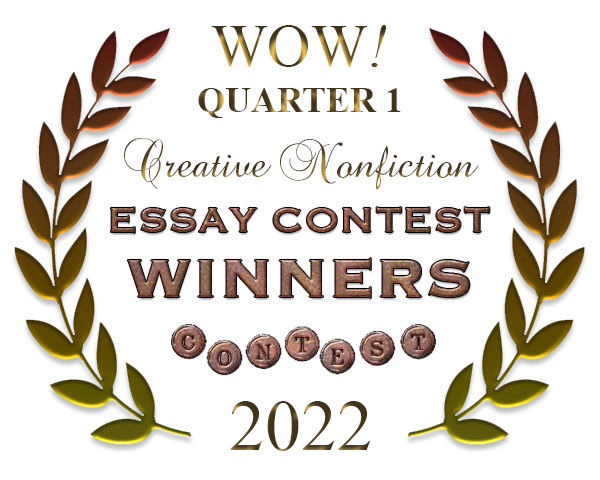
|
 |
| |
|
|
| |
|

We had an open topic this season. Our only guidelines were that submissions be nonfiction with a minimum of 200 words, and a maximum of 1,000 words.
|
| |
|
THANK YOU TO OUR CONTEST SPONSOR:
It is the sincere desire of our sponsor that each writer will keep her focus and never give up. Mari L. McCarthy has kindly donated a prize to each winning contestant. All of the items in her shop are inspiring and can help you reach your writing goals. Write on!
|
| |
|
Note to Contestants:
We want to thank each and every one of you for sharing your wonderful essays with our judges this season. We know it takes a lot to hit the send button! While we’d love to give every contestant a prize, just for your writing efforts, that wouldn’t be much of a competition. One of the hardest things we do after a contest ends is to confirm that someone didn’t place in the winners’ circle. But, believe it when we say that every one of you is a true winner for participating.
To recap our current process, we have a roundtable of 8+ judges who score equally formatted submissions based on: Subject, Content, and Technical. If a contestant scores well on the first round, she receives an e-mail notification that she passed the initial judging phase. The second round judging averages out scores and narrows down the top 20 entries. From this point, our final judges help to determine the First, Second, and Third Place Winners, followed by the Runners Up.
As with any contest, judging so many talented writers is not a simple process. With blind judging, all contestants start from the same point, no matter the skill level, experience, or writing credentials. It’s the writer’s essay and voice that shines through, along with the originality, powerful and clear writing, and the writer’s heart.
We hope that you continue to enter so we can watch you grow as writers and essayists, because each season is a rebirth of opportunity!
 Now on to the winners!
Drum roll please....
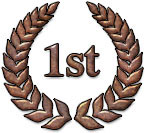
1st Place: Simona Twigg
Washington DC
Congratulations, Simona!
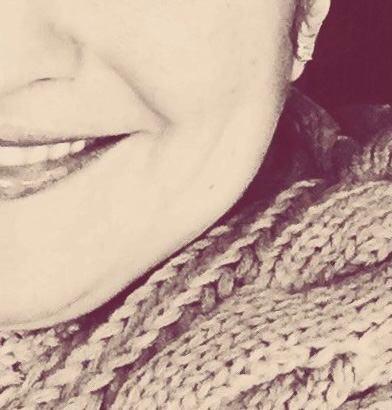
Simona’s Bio:
Simona has been writing since elementary school. She is deeply appreciative of all the teachers, friends, and family members who supported her by listening to her recitations of the overwrought epic poems and questionable tween romance novels she produced in her youth (“if he saved my scrunchie it means he really loves me!”). Fear, along with life and its challenges and changes meant putting aside her dreams of becoming a writer, and she has made her living since as an academic and researcher (for which, given the quality of the epic poems, we should all be grateful). Over the years, more and more stories have been collecting inside her, wondering when she will write them down, and she is finding it harder and harder to swat their insistent voices away. A native of South America who has lived in countries around the world, Simona writes in English about the experience of Latin Americans in the United States (both as citizens and immigrants). She has thrown caution to the winds, and is writing those insistent stories, one by one.
Printable View
Arrival
By Simona Twigg
Pick through the pocket in front of you for any stray treasure. Slick your hair down, pop a mint. There may be a plastic barrier—there wasn’t one before, but now there may be. Squirm, think about the restroom; the restroom can wait. Hold the form. Put the form away. Hold the form. Put the form away. Do they ask for it the moment you enter or later? It used to be later but then sometimes they asked to look at it right away. Check your papers again. Put them away.
The lights go on, landing, ding dong, hundreds of metallic clicks and the rustle of hundreds of bums leaving, or attempting to leave, their seats. Look around and think, I’ll have an easier time of it than you...and you...oh, not as easy a time of it as you. Or you. On your side, the C seats are in the aisles, the Bs are half up, bending like anxious stalks. Most of the flowers are brown. The As wait. You are always an A—you like to look outside—not at the sky, but at the ground crew—they are the ones you read to know that it is safe to go, and safe to stay.
You don’t mind that you have to wait until the slow, clumsy snake of bodies moves up the aisle and out. You prefer this—it gives you time to get your breathing under control, your mind in gear. To think of your answers to the questions that will come: not too smooth, not too practiced, not too bold, but not too scared, not too groveling. No one has told you this, but a lifetime of these questions has taught you the wisdom of wording things just right.
Finally, up, say goodbye and thank you, smile, sometimes they smile back, sometimes they are blank. You respond, every time, as if they have been kind.
The long walk begins. Somehow, after years and years of this, you always forget the long walk. And the mirrored walls. And the turns and eerie silence. No one speaks in these walks, except for the Americans. That’s what sets them apart, more than their clothes. They are the only ones who feel safe enough to speak. You and the rest of the herd are as inaudible as possible, because you know you are now hyper-visible. You walk and you walk and you walk. Your papers sweat in your hand. You should have put them away; no one has asked for them or given them a second glance. The restroom definitely, definitely can wait. You are made of steps and your bag and your breath and those papers.
And then the corridor opens onto a huge room, and the herd parts ways: the congregants and the supplicants. It is the last time you see the congregants; by the time you come out (if you come out) they will be in their Ubers and their Lyfts and their rental cars, or maybe even their families will have picked them up (although they don’t really do that, do they, the congregants and their families? Such a strange place—you were seen off by your family and your family’s family—some you have barely met—with impractical flowers and treats and a heavy book, and they will all be there when you come back—if you come back).
Your herd, the supplicants, move through carefully constructed cattle pens. You wish you had moved faster—you judge the long, winding line in front of you to be a couple of hours worth of wait. You always forget there are other planes, especially at this time. You focus on the families, the clothes, the bags. It is still very quiet.
When you get close enough, you steal looks at the officers, wondering which one will be yours. You pray for the one who seems kind. But when you get the kind one, you come undone. Kindness undoes the tight knot you made inside your belly when the plane landed, and you forget your answers, you get overly familiar, and the kind one grows cold as he stamps your book.
Far better to get one of the curt ones, who rap out their questions so quickly, their accent so incomprehensible, that it takes you a few tries to get the answer out, and with their impatience you can also sense their acceptance of your sincerity, and the stamp goes smack on your book and you are through.
And you smile, but not too much, and breathe, but not too deep—the walls are lined with two-way mirrors, where you know those other rooms are, and you have already seen three, no, four culled from the herd and removed to those rooms, and it could have been you—despite your innocence, despite your visa, and your bank account, that could have been you, so your smile may reach your eyes but it does not reach your belly, not yet.
Another long hall, another way for your suitcase, another long hall, another officer, another form, this time with the dogs sniffing up and down the line, up and down, and one of them is just like the dog you used to have and you smile at it but the dog is working and there is no smile from the dog or its handler, who has a gun, and you are abashed and look at your shoes until you are called forward.
And one more stamp, one more “welcome to America!” even though America was all of us, is all of us, but you will not argue to the point. You say thank you and you walk on to your Uber or your Lyft or your rental car or to the second-cousin of your mother’s old school friend who is there to greet you, smiling, with a truck full of yard bags and lawn equipment and the smell of sweat and grass and home.
***
What Simona Won:

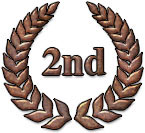
2nd Place: Sue Hann
London
Congratulations, Sue!
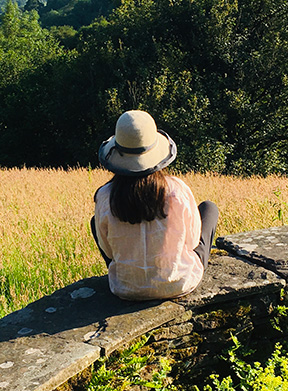
Sue’s Bio:
Sue Hann’s work was long-listed for the Spread the Word Life Writing Prize 2020. She won the Diana Woods Memorial Award 2020. Her writing has been published in journals such as Popshot Quarterly and Litro Online, as well as various flash fiction anthologies. She lives in London with a problematic number of books and is currently working on a collection of essays.
Printable View
Notes on a Pregnancy
By Sue Hann
Geographic tongue is an oral condition characterised by raised red patches on the surface of the tongue. It can occur during pregnancy due to hormonal changes.
My mouth contains a map of the world. Sketched on the vellum of my tongue, it is an ever-shifting picture of land and sea. Archipelagos spread out, red islands with grey borders, barely above sea level. I imagine island-hopping the length of the muscle of my tongue, getting stranded in the erosions and reconstitutions that occur overnight.
In the third trimester of pregnancy, weight gain of up to one pound a week is to be expected.
My skin is stretched so tight that it itches. Snakes can shed their skin every two weeks, a process governed by their hormones. The thought of slithering out of this taut wrapper and into a new, roomier one is appealing.
I measure my growing circumference and jot down the figures each day, neatly, methodically, plotting its course, as if I am the Master of this Ship, Captain of this Corpus.
The Linea Nigra appears during pregnancy due to an increase in melanin production.
A purplish line bisects my abdomen, running from my pubic bone up to my belly button, before fading into the hinterland of my chest. It existed before, this line, but it was invisible, the Linea Blanca. I was always marked with this animal stripe splitting me in two, I just couldn’t see it.
To see all of my bump, I need the help of the mirror. I look like a prawn, I think, as I turn this way and that in front of my reflection, examining my new markings.
In utero, the baby needs plenty of calcium to develop its skeleton. When there is not enough calcium available from the mother’s diet, the baby will draw what it needs from the mother’s bones.
I drink my milk and eat yoghurt by the spoonful, wondering how much I need to keep this parasitic being fed. I imagine it slowly sucking all the calcium out of my bones. Which bones would it start with? I wonder. The ones closest in proximity—the pelvic bones perhaps? I picture my pelvis cracking, crumbling, crushed to dust.
Bones have a honeycomb structure.
I dream about bees: My mother is wearing a white beekeeper suit with black netting around her face, like a widow. She holds a wooden tray, pulsing with a mass of bees. She gestures to me to come to her.
“I can’t!” I shout over the angry drone, pointing to my unprotected body.
“Come!” she waves, insistent.
Hormonal changes during pregnancy can cause mood swings.
I turn into a wolverine, this aggressive beast, fighter of the animal kingdom. Walking in the park, a kid on a scooter narrowly misses crashing into my bump. I bare my teeth and roar, not caring that this is a juvenile. My hands turn to claws and reach out to protect my belly, ready to draw blood.
Leg cramps are common during pregnancy. The exact cause is unclear.
I have to remember not to stretch my legs out in bed when I first wake, as any point of my toes can bring on a cramp that grips and doesn’t let go.
I forget one day in the bath. Soaking away my aches, I use my toe to turn on the hot tap. My leg spasms into an iron knot. My abdominal muscles are bent and bowed, unable to help me up, so I flail and thrash, the cramp unreachable.
As the uterus expands with the growing baby, it moves up and out, displacing organs like the stomach and lungs.
Taking a deep breath is difficult. Some days I expect to wake up with my lungs nestled around my neck like a stole. They would be more comfortable there perhaps, at least having space to inflate and deflate with ease.
My stomach is similarly squashed. Even after a small meal, I get acid reflux. The stomach is a J-shaped bag. If it was detachable, I’d hook it over the crook of my elbow, like a useful handbag, and treat it with the respect it deserves.
A high sugar diet during pregnancy is linked to childhood obesity in the unborn baby.
After losing my appetite to constant nausea in the first trimester, it returns in the second, and builds up to a roaring greed in the third. I dream of café counters piled high with pastries, iced cakes displayed like works of art under glass domes. I buy tins of salted caramels from France, unwrapping the cellophane and letting them melt on my tongue.
A friend of mine loves foie gras; he orders it in fancy restaurants when we meet for dinner. I imagine farmers lining up rows of geese, fitting steel tubes into their throats, force feeding them fatty foods that swell their liver to an unnatural size.
Am I now the goose farmer? I think as I rub my bump, full of remorse.
Baby’s movements can be felt as early as 16 weeks of pregnancy.
Baby is an active one. What once was a delicate butterfly flutter deep in my abdomen is now a robust kick under my ribs, or a protruding foot pushing out of my skin. Sometimes there’s a darting jumble of movement, like a bag of kittens.
“Feel,” I say to my husband, grabbing his hand and placing it on the watermelon orb of my belly, running it over the hard and knobbly lump.
“What’s that?” he asks, alarmed, snatching his hand away, the physicality of it too much. He prefers to think of baby in the abstract. Sweet-smelling and swaddled in fluffy blankets.
Colonised, marked, fed upon, my body is not my own now. Abstraction is a luxury I do not have.
I rub the bump and feel the bony body part move underwater again.
***
What Sue Won:


3rd Place: Carol Ovenburg
Talent, Oregon
Congratulations, Carol!
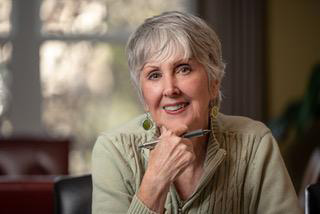
Carol’s Bio:
Carol Ovenburg has been a visual artist for over 40 years, a writer for over 20 years. She loves writing creative non-fiction essays, was recently published by WOW-Women on Writing as a 4th quarter, 2021 2nd place winner. She is currently finishing her first memoir titled, Pearls about her struggle growing up the daughter of an alcoholic mother with borderline personality disorder. She reads and screens and scores plays for the Ashland New Plays Festival. Carol is in two local writing groups with timed writing exercises a la Natalie Goldberg. On occasion she finds the time to sit down with a good book, usually a memoir or something of historical interest. She and her partner watch good foreign films and foreign detective series. Once a month they travel to Argentine tango dance festivals held in different cities around the US for social, not competitive dancing. She is temporarily living and working in the hills of Ashland, Oregon with her partner awaiting the re-build of their home consumed by the Almeda fire in Talent, Oregon, September 8, 2020. She and her partner hope to be moved in by the end of January, 2022.
Printable View
Marcia
By Carol Ovenburg
You merge into Your Mother’s words, her thoughts, what she hears, what she smells, how she separates blooms from weeds. Her name is Marcia.
You are a weed in Marcia’s Garden – a long, scraggly weed. Not the beautiful bloom she expected.
Will she find value in this weed, find beauty in its resilience?
Or will she dig at the roots to weaken you – wincing at your imperfections, training you to do the same.
Your Mother calls you a homely baby. Long and bald. According to Grandma, Your Mother won’t hold you.
You want to believe Your Mother had days when she cradled you, but you can’t remember her arms surrounding you with safety or warmth or pride unless it was credit she took for your accomplishments.
You need her to show you how to be proud of yourself.
***
Your Mother’s love comes with you tickling her back with the tips of your fingers. You cringe at the way she pulls at your touch.
She says – Now draw letters on my back with your finger. Let me try to guess.
You need her to love you without your working for it.
***
Your Mother is the book of rules and etiquette. She teaches you the proper way to set a table, to clean a house, to keep everything neat. She wraps her teaching in chores for you. Every Saturday morning, she says –
Rise and shine.
Time for your chores.
Wash the loads.
Then load the dryer.
Clean the kitchen first in case company comes.
Then clean the house.
Iron the king size sheets. Iron your stepdad’s boxer shorts.
The back-and-forth rhythm of your ironing arm sends you drifting into Cinderella fantasies as Your Mother trains you in the art of servitude.
You need her to teach you independence.
***
Your Mother is particular about body cleanliness. Your stepdad calls her Mrs. Clean.
She cleans you with baths and enemas.
She places a towel on the white tile floor of the green-tiled bathroom and has you lie on your side curled up. You grimace at the shiny red rubber bag swollen with fluid and its long red tube ending in a black hard plastic finger with ridges and holes and a flared-out tip.
Your Mother shoves the tip into your tiny butt. Cold rushes into your tiny belly. Spasms clench your tiny gut.
You rush to the toilet before it’s time.
Your Mother scolds you for not holding it in.
Whenever you sit on the toilet to pee, you stare at the deflated bag hanging over the shower head and you feel it inflate your tiny bottom punishing you for your dirty insides.
You need her to show you appropriate hygiene.
***
Your Mother tries teaching you how to pluck the dead petals of your eyebrows, how to apply makeup, how to help you look less like a tall thin weed.
You’re twelve when she dyes your hair.
You’re sixteen when she shapes your flowering – even weeds bloom at some point.
She tells the doctor you need birth control pills. She’s afraid of pregnancy.
You need her to teach you about sex and beauty.
***
You swear to yourself that you will never be like Your Mother.
But her voice – that voice lives loud in your head.
That voice – It’s too bad you didn’t get my eyebrows – those thick arched brunette brows that frame her deep-set hazel green eyes and need no filling in with an eyebrow pencil.
That voice – It’s too bad you didn’t get my narrow feet. You could have borrowed my shoes – the shoes Grandpa sends her because he is a well-known shoe designer and keeps her in the latest styles.
That voice – It’s too bad you didn’t get my hair – her glossy thick brunette hair with loads of body and natural wave – the hair that hairdressers love and use Your Mother in hair shows to show off their skill.
Her voice – It’s too bad you didn’t get my legs – shapely and in perfect proportion to her 5’2” frame.
Your eyebrows are thick and triangular with no natural arch. Your feet are wide – Bs to Your Mother’s triple As. You have a lot of hair, but it’s fine hair, dark brown, sun-bleached gold at the ends and stick-straight – the kind of straight hair even perms don’t curl. Your legs are long in the thigh, short in the calf, and your feet splay out when your knees point forward.
You wish you had Your Mother’s hair. Her feet. Your Mother’s eyebrows. Her legs.
You wish she had seen you as pretty. Not a weed that needs yanking and tossing.
You need her to show you how to appreciate yourself.
***
In Your Mother’s first house, she plants blooming shrubs – Dwarf gardenias. Single and double pink hibiscus. Red geraniums. She plants one tree – a four-foot magnolia for the front yard. She rips out grass runners from other people’s yards and plants them in yours. She buys an edger, an electric lawn mower. Yet it’s you who pulls weeds from her garden to manage her love of blooms and beauty.
***
You’re a woman now and people tell you you’re beautiful, stunning, striking. How beautiful your eyes, how radiant your smile.
And you say – Really? You think so?
You can’t believe it might be true. You’re a weed after all. Who ever heard of a beautiful weed?
***
Marcia is older now – the narcissus of her soul fading with her image. She’s grown to hate blooms.
She says – Don’t bring me flowers. I hate it when people bring me flowers.
You say – Why?
She says – Flowers die.
***
What Carol Won:
 RUNNERS UP:
Congratulations to the runners-up! It was very close, and these essays are excellent in every way.
Click on the titles to read:
Red Dirt by Tiffany Doerr Guerzon, Seattle, Washington
Lucy’s Lips by Julie Hester, Arden, North Carolina
Orange Communion by Marcy Dilworth, Clifton, Virginia
How to Activate Your Ancestry DNA Kit by Susan Triemert, St. Paul, Minnesota
Ghost House by Laura Ruth Loomis, Pittsburg, California
A Bad Date by Marie Davis, Washington DC Nature’s Sanity by Julie Lockhart, Port Townsend, Washington
HONORABLE MENTIONS:
Congratulations to our Essay Contest Honorable Mentions! Your essays stood out and are excellent in every way.
Starving for Attention by Sarah Goldstein, Los Angeles, California
There Was a Fire Here by Risa Nye, Oakland, California
Exploring the Language of Miscarriage by Jenna Grace, Detroit, Michigan
Fertile Cycles by Naomi Hazel Waters, Boston, Massachusetts
Part of Their Sound by Megan Hadley, Cincinnati, Ohio
The Boat Chronicles by Christine Washburn, Sudbury, Massachusetts
Carpet Ride by Lori L. Greenstone, Camas, Washington
Anxiety by Samantha Karl, Milwaukee, Wisconsin
What to Wear for Your Cremation by Joyce Ann Wheatley, Ithaca, New York
Exit Stage Left by Yvonne de Grandbois, Celigny, Geneva, Switzerland
What the Honorable Mentions Won:

IN CLOSING:
This brings the Q1 2022 essay contest officially to a close! Although we’re not able to send a special prize to every contestant, we will always give our heartfelt thanks for your participation and contribution, and for your part in making WOW! all that it can be. Each one of you has found the courage to enter, and that is a remarkable accomplishment in itself. Best of luck, and write on!
Check out the latest Contests:
https://www.wow-womenonwriting.com/contest.php
|
|
|
|
|